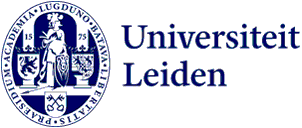
Developing tailored information for institutes on research grants
Sieger van den Aardweg is Knowledge Base Manager for the Grant Development Team at the Strategy and Academic Affairs Directorate, part of Administration and Central Services. He is working within the Leiden Research Support programme on tailored information provision, in collaboration with several institutes. Tailored information provision is a way to provide institutes with specific information about research grants and how to apply for them.

What do you mean by tailored information provision?
‘Tailored information provision means supplying institutes with specialised information about research grants, so that they can search for specific grants that might be interesting to them. The information can be tailored to an institute, but it’s also possible to focus on a theme or specific researcher. Each researcher is looking for different information so the approach has to be different too.’
Why is tailored information so important?
‘There are so many funding providers and calls, which means a lot of information is available. Researchers are busy with their research and have little time to go through all that information. The bigger grants are usually fine, but there are many smaller and specific funds that are potentially interesting. The better the information provision, the more efficient the application process.’
What do you hope to achieve with the project?
‘Ultimately, we want to improve our support of grant officers in the faculties and institutes, so that they can provide more efficient and effective help to researchers who are applying for research grants. General information sent to a diverse group often fails to achieve the goal because it’s not of specific interest to anyone. There are so many calls and funding providers that it’s hard to see the wood for the trees. First-line support staff and researchers already have more than enough work to do. Tailored information provision can make this process much more efficient.’
You're currently running pilots at two institutes with the aim of developing a method that gets the right information to researchers. How did you go about that?
‘We’ve started pilots at the Leiden University Centre for Linguistics (LUCL) at the Faculty of Humanities and the Leiden Institute of Advanced Computer Science (LIACS) at the Faculty of Science. Since each institute has its own needs in terms of information, the approaches are different.
‘At LUCL, we’re working on a profile for each type of researcher because the grant officers want a better idea of what the researchers do. The profile includes which kinds of grants are of interest to the researcher and, for example, what stage they’re at in their career. Once the profiles have been completed, we’ll be able to use them to provide more tailored information about grants.
‘We’ve taken a different approach at LIACS. They need information about where opportunities lie for the institute as a whole rather than for the individual researchers. We have built a central database where we can use tags to select interesting themes for the LIACS. This makes it easy for the institute to search for specific grants that are of interest to them, without having to wade through the entire database.’
How far along are these pilots?
‘At present, we’ve just started getting the tags of the LIACS pilot working. We’re checking whether the information really is useful for the institute and whether it meets their needs. We’ll keep refining everything until it works properly. When that’s done, we’ll introduce this functionality at other institutes so that we can provide each of them with tailored information.
‘In addition, we are looking into the possibility of automating the information provision with the help of artificial intelligence (AI). AI would allow us to determine the profiles of researchers based on their publications and that information would be linked to the tags. That would create a match between researcher and funding provider. But we’re not there yet. Automating the system is still some way in the future.’
How is the collaboration with the first-line support staff going?
‘We’re working closely with first-line support staff at LUCL and LIACS. We’re continually evaluating and looking together at where new opportunities are to be found. We also have a role in spotting cross-faculty opportunities, for example if there is a grant where multiple institutes could collaborate. If the system works as it should and the tags are right, the connections will be made automatically. Even now, if two institutes are tagged for the same call, we can discuss with them whether collaboration would be possible.
‘To tailor our information provision, we need input from the first-line support staff, in compiling the profiles, for example. And they are keen to cooperate, but finding time is always an issue. However, the sooner we can provide tailored information, the more focused and efficient our grant applications will be. That means time saved not only for the researchers but also for the first-line support staff.’
Response from Katja Lubina, grant officer at LUCL
‘Tailored information is really useful for us and definitely adds value. I get a list of all calls from the Grant Development Team, which I can easily filter for anything that is of interest to our researchers. They don’t need to go through the list themselves, which saves a lot of time.
‘The Grant Development Team has grant officers who are knowledgeable about a specific faculty, which means they also have answers to questions that are relevant for us. Another useful aspect is the information sessions we hold together with the team. Staff share information about how researchers from LUCL can best approach a call. We discuss useful tips like which expectations there are with certain calls or how to read between the lines so that the researcher can use that information when submitting a proposal. This increases the chances of our researchers actually being awarded a grant.’
Interested? If you are interested in the opportunities for your institute or faculty, get in touch with grants@bb.leidenuniv.nl or the Grant Development Office.
